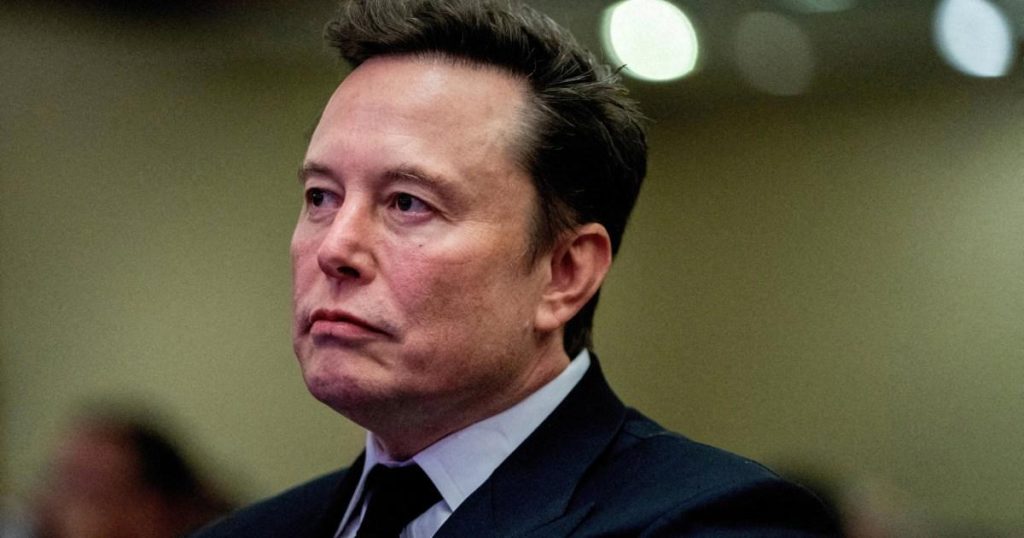Elon Musk’s recent pronouncements regarding grooming gangs, amplified by his platform X (formerly Twitter), have sparked widespread condemnation and accusations of misinformation. Critics argue Musk’s rhetoric, which includes labeling UK Safeguarding Minister Jess Phillips a “rape genocide apologist,” distracts from the crucial work of implementing the recommendations of the Independent Inquiry into Child Sex Abuse (IICSA). The IICSA, chaired by Professor Alexis Jay, conducted an extensive investigation into child sexual abuse, publishing its final report in October 2022. Instead of focusing on implementing the report’s recommendations, Musk and some political factions are pushing for another inquiry, a move Professor Jay actively opposes. Critics question Musk’s motives, suggesting his actions are driven by political ambitions in the US, where there’s a push to deregulate social media platforms from fact-checking responsibilities under the guise of “free speech.” Others believe Musk’s inflammatory rhetoric is a cynical ploy to generate controversy and increase engagement on X, profiting from the outrage of those who denounce his statements. This “rage-baiting” tactic, as it’s been dubbed, raises serious concerns about the destructive potential of unchecked social media platforms.
The ensuing debate highlights broader concerns about misinformation and the politicization of sensitive issues. One reader emphasizes the importance of adhering to facts when discussing grooming gangs, citing Home Office research that indicates the majority of offenders in group-based child sexual exploitation cases are white. This underscores the dangers of generalizing about entire communities based on the actions of a few. The reader urges politicians and social media users alike to refrain from spreading misinformation, which can further divide communities and exacerbate existing tensions. Instead, the focus should be on shared values and common ground, promoting unity rather than division. This plea for factual accuracy and responsible dialogue comes at a time when social media platforms like X are increasingly used to disseminate unverified claims and inflammatory rhetoric.
Further concerns have been raised regarding the far-right’s exploitation of these tragic cases to fuel anti-Muslim sentiment. Several readers have pointed out a perceived hypocrisy in the outrage expressed by certain figures, particularly given their support for individuals accused of sexual misconduct. This apparent dissonance raises questions about the sincerity of their concerns and suggests that the issue may be being weaponized for political gain. The timing of this outcry, coinciding with a renewed focus on addressing the IICSA recommendations, further fuels suspicions of a deliberate attempt to derail efforts to implement meaningful safeguards for children.
The comparison to historical cases involving white offenders has also sparked debate. One reader questions whether the public and political response would be the same if the perpetrators were white and English, highlighting a potential double standard in how these cases are perceived and addressed. This raises the uncomfortable question of whether underlying racial biases influence the narrative and subsequent reactions. The focus on the ethnicity of the perpetrators, some argue, overshadows the suffering of the victims and distracts from the urgent need for systemic change to prevent future abuse.
Elon Musk’s own past behavior adds another layer of complexity to the situation. His prior accusation of pedophilia against a British cave diver who criticized his involvement in the Thai cave rescue raises doubts about his sincerity in addressing sexual crimes. This incident, where Musk labeled Vernon Unsworth a “pedo guy” after Unsworth dismissed Musk’s offer of a mini-submarine as impractical, suggests a pattern of impulsive and vindictive behavior. Critics argue that this history undermines Musk’s credibility on the issue of child sexual abuse and question whether his current pronouncements are genuinely motivated by concern or merely another instance of his using inflammatory rhetoric for personal gain.
Finally, Musk’s association with controversial figures like Donald Trump further complicates the narrative. One reader expresses concern over Trump’s purported ambitions of global dominance, allegedly supported by Musk, and the potential spread of their ideology through social media platforms like X. This concern highlights the potential for powerful individuals to use their platforms to disseminate potentially dangerous ideas and further polarize public discourse. The call for boycotts against American products, particularly Tesla cars, reflects a growing unease with the influence wielded by these figures and a desire to push back against their perceived agenda. The complex interplay of political ambition, social media manipulation, and underlying racial biases continues to fuel a heated and multifaceted debate about how to address the critical issue of child sexual abuse and the role of public figures in shaping the narrative.




